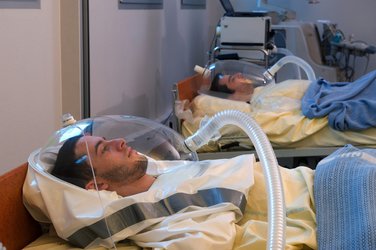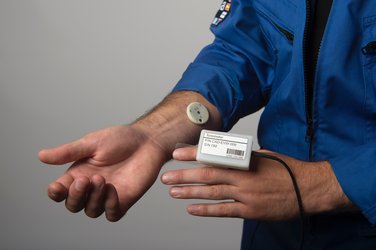Accept all cookies Accept only essential cookies See our Cookie Notice

About ESA
The European Space Agency (ESA) is Europe’s gateway to space. Its mission is to shape the development of Europe’s space capability and ensure that investment in space continues to deliver benefits to the citizens of Europe and the world.
Highlights
ESA - United space in Europe
This is ESA ESA facts Member States & Cooperating States Funding Director General Top management For Member State Delegations European vision European Space Policy ESA & EU Space Councils Responsibility & Sustainability Annual Report Calendar of meetings Corporate newsEstablishments & sites
ESA Headquarters ESA ESTEC ESA ESOC ESA ESRIN ESA EAC ESA ESAC Europe's Spaceport ESA ESEC ESA ECSAT Brussels Office Washington OfficeWorking with ESA
Business with ESA ESA Commercialisation Gateway Law at ESA Careers Cyber resilience at ESA IT at ESA Newsroom Partnerships Merchandising Licence Education Open Space Innovation Platform Integrity and Reporting Administrative Tribunal Health and SafetyMore about ESA
History ESA Historical Archives Exhibitions Publications Art & Culture ESA Merchandise Kids Diversity ESA Brand CentreLatest
Space in Member States
Find out more about space activities in our 23 Member States, and understand how ESA works together with their national agencies, institutions and organisations.
Science & Exploration
Exploring our Solar System and unlocking the secrets of the Universe
Go to topicAstronauts
Missions
Juice Euclid Webb Solar Orbiter BepiColombo Gaia ExoMars Cheops Exoplanet missions More missionsActivities
International Space Station Orion service module Gateway Concordia Caves & Pangaea BenefitsLatest
Space Safety
Protecting life and infrastructure on Earth and in orbit
Go to topicAsteroids
Asteroids and Planetary Defence Asteroid danger explained Flyeye telescope: asteroid detection Hera mission: asteroid deflection Near-Earth Object Coordination CentreSpace junk
About space debris Space debris by the numbers Space Environment Report In space refuelling, refurbishing and removingSafety from space
Clean Space ecodesign Zero Debris Technologies Space for Earth Supporting Sustainable DevelopmentLatest
Applications
Using space to benefit citizens and meet future challenges on Earth
Go to topicObserving the Earth
Observing the Earth Future EO Copernicus Meteorology Space for our climate Satellite missionsCommercialisation
ESA Commercialisation Gateway Open Space Innovation Platform Business Incubation ESA Space SolutionsLatest
Enabling & Support
Making space accessible and developing the technologies for the future
Go to topicBuilding missions
Space Engineering and Technology Test centre Laboratories Concurrent Design Facility Preparing for the future Shaping the Future Discovery and Preparation Advanced Concepts TeamSpace transportation
Space Transportation Ariane Vega Space Rider Future space transportation Boost! Europe's Spaceport Launches from Europe's Spaceport from 2012Latest

NutrISS experiment
Thank you for liking
You have already liked this page, you can only like it once!
Getting meals right is an aspect of mission design, so the Nutrition Monitoring for the International Space Station (NutrISS) experiment is tracking Luca’s energy balance.
Using the EveryWear astronaut app and a ‘bioelectric impedance’ device to measure his bodily conductivity, Luca has been tracking his fat to mass ratio. The science teams on Earth hope that a carefully-tailored high-protein diet could limit the typical microgravity-driven loss of bone and muscle.
EveryWear is an iPad-based application that collects physiology and medical data from astronauts on the International Space Station. It is connected to wearable biomedical sensors that record exercise, heart rate and sleep quality.
Its main use is as a food diary. The astronaut simply scans the barcode of the food with the built-in tablet camera, classify it as breakfast, lunch dinner or snack, and add how water was consumed.
The crew can also add food by tapping on a specific product. The app comes loaded with a database containing all the food on the Space Station, both in English and in Russian. If something is not listed yet, there is an option to take a picture.
An added value of the tool is that it connects the astronaut with nutrition experts on Earth, some 400 km below. Ground teams receive the information and can suggest the best combination of meals for a healthy stay in orbit.
In addition to the weekly expert advice, the app delivers automated nutrition reports for astronauts to monitor their daily intake and check the recommended dose. The focus is on calories, protein, water, carbohydrates, fat, sodium, calcium, iron and potassium.
-
CREDIT
ESA/NASA -
LICENCE
ESA Standard Licence

Space macarons

Bedrest energy

Masked for energy consumption

Astronaut vlog: space food and fitness















 Germany
Germany
 Austria
Austria
 Belgium
Belgium
 Denmark
Denmark
 Spain
Spain
 Estonia
Estonia
 Finland
Finland
 France
France
 Greece
Greece
 Hungary
Hungary
 Ireland
Ireland
 Italy
Italy
 Luxembourg
Luxembourg
 Norway
Norway
 The Netherlands
The Netherlands
 Poland
Poland
 Portugal
Portugal
 Czechia
Czechia
 Romania
Romania
 United Kingdom
United Kingdom
 Slovenia
Slovenia
 Sweden
Sweden
 Switzerland
Switzerland
























